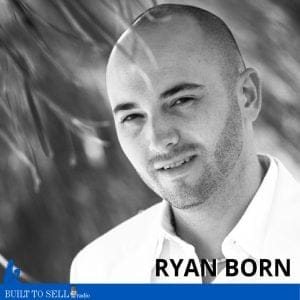About this episode
In eight years Ryan Born built Audio Micro into an Inc. 500 company. Born went on to sell it for more than $20 million in 2014 – a deal that only happened because he put an expiry date on the “no shop” clause on his Letter of Intent.
One of the reasons Born was paid handsomely for his start up was the positive cash flow model he had created. Instead of buying media rights and reselling them, he sold the rights first and then paid the content owner 30 to 120 days later. This “float” allowed him to keep more equity for his eventual exit. Cash flow is our focus in Module 10 of The Value Builder Engagement. Get started by getting your Value Builder Score™ now.

About Our Guest
Ryan Born is a media entrepreneur best known as the founder of AdRev/AudioMicro Inc., a digital rights management and content licensing network, the majority of which was acquired by Zealot Networks in 2014-2015 for $20 million. AudioMicro Inc. ranked as the LA’s fifth fastest growing media company in the 2015 Inc. 500 list (#162 overall). Previously, Born was an investor in and VP of Finance for WireImage (acquired by Getty Images in 2007 for $208 million), and he was an angel investor in NewCondosOnline and Internet Marketing SEO, Inc. He has been a guest lecturer at Emory University, UCLA, UCSB, Loyola Marymount and numerous industry conferences and events.


